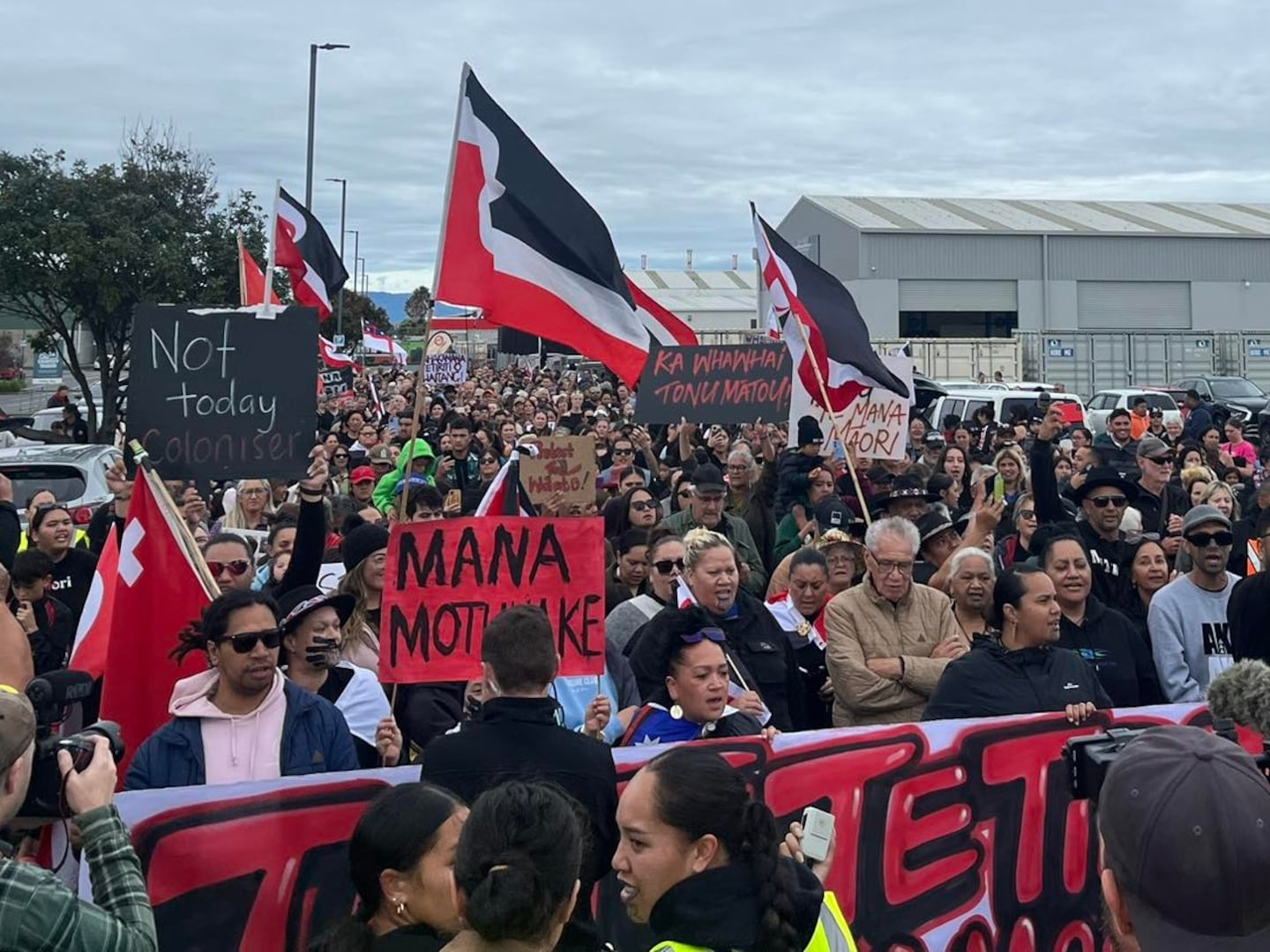Ngāi Te Rangi has applied for an urgent hearing by the Waitangi Tribunal, saying the government has failed to safeguard the Māori language and violated critical sections of the Māori Language Act, which breaches the Treaty of Waitangi.
The trust said the proposed suspension of Treaty principles in current law without parliamentary amendment also contravened Article 1 of the Bill of Rights.
“Attacks on our language, culture, mana and tino rangatiratanga will be passionately resisted,” trust chief executive Paora Stanley said.
“This government is acting like a ‘drunken sailor’ with no concern for the process required to change policy and law.”
Hundreds of people across the country took to the streets even before the current parliamentary term opened last week, voicing their opposition to the government’s intentions to roll back initiatives surrounding te reo Māori and policies targeted at addressing inequities.
Te Arawhiti Minister, Tama Potaka said te reo Māori was considered a taonga and was ‘absolutely fundamental’ to the cultural identity in Aotearoa.
“I understand there are a lot of people concerned with the way that te reo is being discussed and amplified throughout the media and also perhaps the coalition government. However, I’m focused on learning and speaking and encouraging people to understand te reo Māori.
“I’ll leave the messaging [of ministerial colleagues] to them but what I am absolutely focused on and this coalition government is focused on is being really positive and really constructive around te reo Māori.”
Last week Prime Minister Christopher Luxon said putting the Pākehā names first would make it easier for the public “‘to navigate its government agencies”.
Waka Kotahi (NZTA) was one of the first agencies to fulfil the new government’s intention, pre-emptively announcing it would immediately change its name to have the English first with the reo Māori equivalent to follow.
Potaka, however, told media on Tuesday morning he was unaware of any directives to put English names first.
“But what I am aware of is the minister for the public service has been very focused on ensuring people communicate effectively in the public service and if people want to speak Māori within public services then, ka pai, they speak Māori to someone who speaks Māori.
“But if someone is using the public service and they don’t know how to speak Māori and they don’t know how to speak English then it is probably more effective to speak English.”
More than a press release
“To be clear, getting government organisations to change names requires more than a press release,” Stanley said.
“The application for an urgent hearing will ensure the law is followed, and serve as a reminder, that laws are for everyone, including the purveyors of hegemony.”
Stanley said he had confidence the tribunal would provide the new coalition government with guidance on how to comply with Treaty principles and act consistently with its partnership obligations to provide a ful lto Te Reo Rangatira.




